#and its not about racial struggles
Explore tagged Tumblr posts
Text
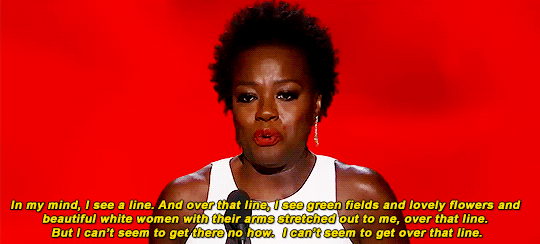
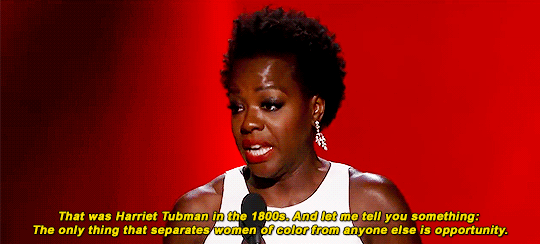
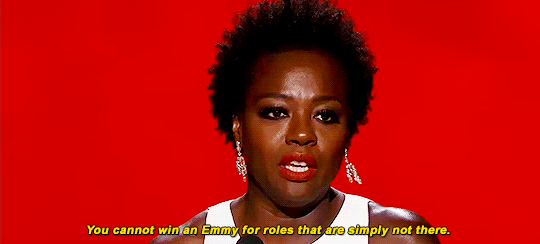
So here’s to all the writers, the awesome people that are Ben Sherwood, Paul Lee, Peter Nowalk, Shonda Rhimes, people who have redefined what it means to be beautiful, to be sexy, to be a leading woman, to be black. And to the Taraji P. Hensons, the Kerry Washingtons, the Halle Berrys, the Nicole Beharies, the Meagan Goods, to Gabrielle Union. Thank you for taking us over that line.
#this speech is simply unforgettable#i think about it all the time#ive been rewatching some shows#and now im rewatching bridgerton#and like !!!#what a great idea to just be race inclusive#and clearly no one cares if you add poc#its even MORE successful#bridgerton did such a great job about being race inclusive#and its not in your face#and its not about racial struggles#lord knows there's enough media about poc being oppressed and all that#we just need some regular shows! with poc! it aint that hard!!!!!#viola davis#mine*#gifs*#violadavisedit#violadavisgifs#dailywomen#flawlessbeautyqueens#femalestunning#userrobin#ladiesofcinema#nessa007#dailywoc
87 notes
·
View notes
Text
This article is from 2022, but it came up in the context of Palestine:
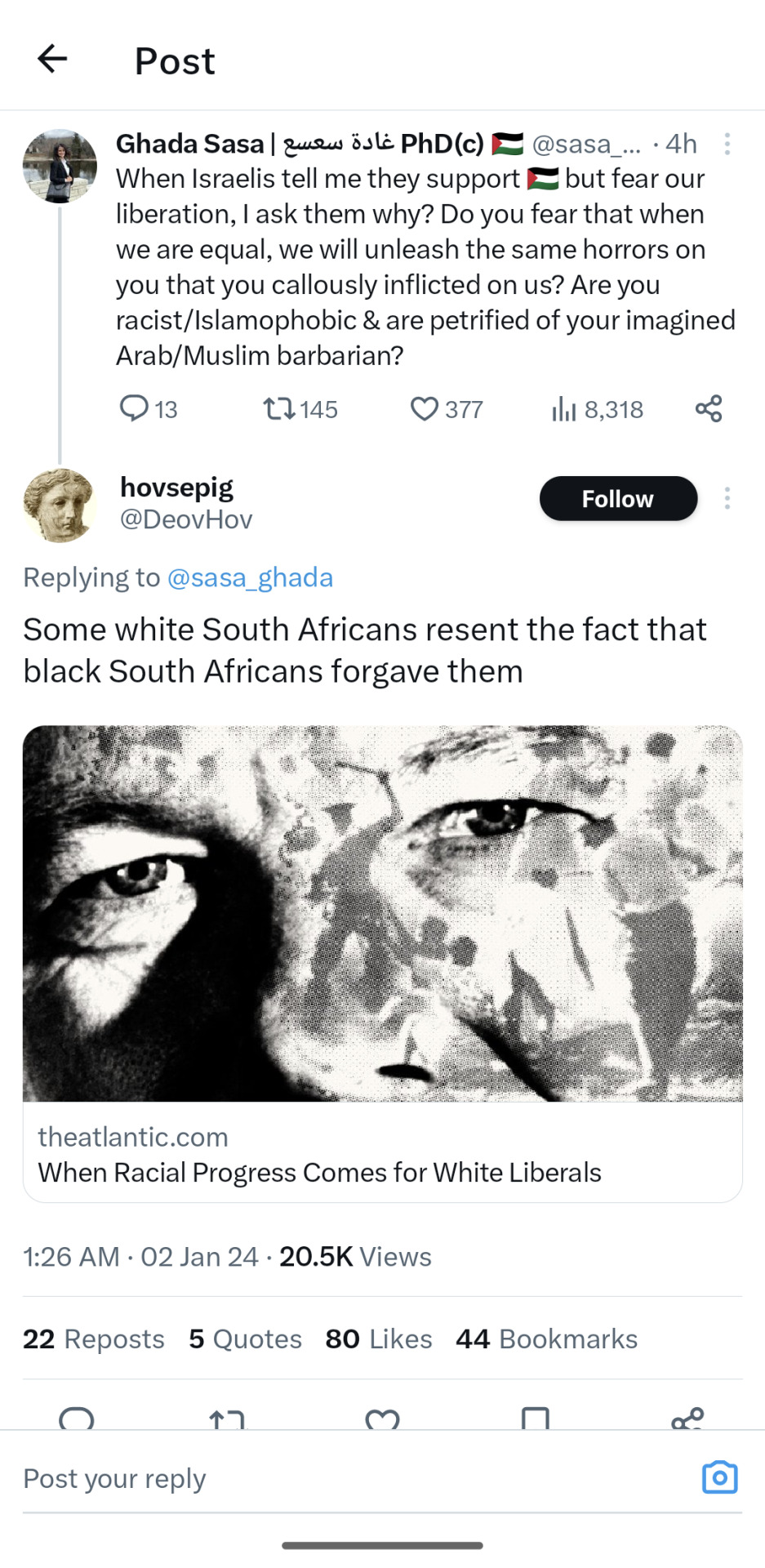
Here are some striking passages, relevant to all colonial aftermaths but certainly also to the forms we see Zionist reaction taking at the moment:
Over the decade I lived in South Africa, I became fascinated by this white minority [i.e. the whole white population post-apartheid as a minority in the country], particularly its members who considered themselves progressive. They reminded me of my liberal peers in America, who had an apparently self-assured enthusiasm about the coming of a so-called majority-minority nation. As with white South Africans who had celebrated the end of apartheid, their enthusiasm often belied, just beneath the surface, a striking degree of fear, bewilderment, disillusionment, and dread.
[...]
Yet these progressives’ response to the end of apartheid was ambivalent. Contemplating South Africa after apartheid, an Economist correspondent observed that “the lives of many whites exude sadness.” The phenomenon perplexed him. In so many ways, white life remained more or less untouched, or had even improved. Despite apartheid’s horrors—and the regime’s violence against those who worked to dismantle it—the ANC encouraged an attitude of forgiveness. It left statues of Afrikaner heroes standing and helped institute the Truth and Reconciliation Commission, which granted amnesty to some perpetrators of apartheid-era political crimes.
But as time wore on, even wealthy white South Africans began to radiate a degree of fear and frustration that did not match any simple economic analysis of their situation. A startling number of formerly anti-apartheid white people began to voice bitter criticisms of post-apartheid society. An Afrikaner poet who did prison time under apartheid for aiding the Black-liberation cause wrote an essay denouncing the new Black-led country as “a sewer of betrayed expectations and thievery, fear and unbridled greed.”
What accounted for this disillusionment? Many white South Africans told me that Black forgiveness felt like a slap on the face. By not acting toward you as you acted toward us, we’re showing you up, white South Africans seemed to hear. You’ll owe us a debt of gratitude forever.
The article goes on to discuss:
"Mau Mau anxiety," or the fear among whites of violent repercussions, and how this shows up in reported vs confirmed crime stats - possibly to the point of false memories of home invasion
A sense of irrelevance and alienation among this white population, leading to another anxiety: "do we still belong here?"
The sublimation of this anxiety into self-identification as a marginalized minority group, featuring such incredible statements as "I wanted to fight for Afrikaners, but I came to think of myself as a ‘liberal internationalist,’ not a white racist...I found such inspiration from the struggles of the Catalonians and the Basques. Even Tibet" and "[Martin Luther] King [Jr.] also fought for a people without much political representation … That’s why I consider him one of my most important forebears and heroes,” from a self-declared liberal environmentalist who also thinks Afrikaaners should take back government control because they are "naturally good" at governance
Some discussion of the dynamics underlying these reactions, particularly the fact that "admitting past sins seem[ed] to become harder even as they receded into history," and US parallels
And finally, in closing:
The Afrikaner journalist Rian Malan, who opposed apartheid, has written that, by most measures, its aftermath went better than almost any white person could have imagined. But, as with most white progressives, his experience of post-1994 South Africa has been complicated. [...]
He just couldn’t forgive Black people for forgiving him. Paradoxically, being left undisturbed served as an ever-present reminder of his guilt, of how wrongly he had treated his maid and other Black people under apartheid. “The Bible was right about a thing or two,” he wrote. “It is infinitely worse to receive than to give, especially if … the gift is mercy.”
14K notes
·
View notes
Text
Hey so like many of you, I saw that article about how people are going into college having read no classic books. And believe it or not, I've been pissed about this for years. Like the article revealed, a good chunk of American Schools don't require students to actually read books, rather they just give them an excerpt and tell them how to feel about it. Which is bullshit.
So like. As a positivity post, let's use this time to recommend actually good classic books that you've actually enjoyed reading! I know that Dracula Daily and Epic the Musical have wonderfully tricked y'all into reading Dracula and The Odyssey, and I've seen a resurgence of Picture of Dorian Gray readership out of spite for N-tflix, so let's keep the ball rolling!
My absolute favorite books of all time are The Haunting of Hill House and We Have Always Lived in the Castle by Shirley Jackson. Classic psychological horror books about unhinged women.
I adore The Bad Seed by William March. It's widely considered to be the first "creepy child" book in American literature, so reading it now you're like "wow that's kinda cliche- oh my god this is what started it. This was ground zero."
I remember the feelings of validation I got when people realized Dracula wasn't actually a love story. For further feelings of validation, please read Frankenstein by Mary Shelley and The Strange Case of Dr. Jekyll and Mr. Hyde by Robert Louis Stevenson. There's a lot the more popular adaptations missed out on.
Rebecca by Daphne du Maurier is an absolute gem of a book. It's a slow-build psychological study so it may not be for everyone, but damn do the plot twists hit. It's a really good book to go into blind, but I will say that its handling of abuse victims is actually insanely good for the time period it was written in.
Moving on from horror, you know people who say "I loved this book so much I couldn't put it down"? That was me as a kid reading A Little Princess by Frances Hodgson Burnett. Picked it up while bored at the library and was glued to it until I finished it.
Peter Pan and Wendy by JM Barrie was also a childhood favorite of mine. Next time someone bitches about Woke Casting, tell them that the original 1911 Peter Pan novel had canon nonbinary fairies.
Watership Down by Richard Adams is my sister Cori's favorite book period. If you were a Warrior Cats, Guardians of Ga'Hoole or Wings of Fire kid, you owe a metric fuckton to Watership Down and its "little animals on a big adventure" setup.
A Raisin in the Sun by Lorraine Hansberry was a play and not a book first, but damn if it isn't a good fucking read. It was also named after a Langston Hughes poem, who's also an absolutely incredible author.
Fahrenheit 451 by Ray Bradbury is a book I absolutely adore and will defend until the day I die. It's so friggin good, y'all, I love it more than anything. You like people breaking out of fascist brainwashing? You like reading and value knowledge? You wanna see a guy basically predict the future of television back in 1953? Read Fahrenheit.
Huckleberry Finn by Mark Twain and To Kill a Mockingbird by Harper Lee are considered required reading for a reason: they're both really good books about young white children unlearning the racial biases of their time. Huck Finn specifically has the main character being told that he will go to hell if he frees a slave, and deciding eternal damnation would be worth it.
As a sidenote, another Mark Twain book I was obsessed with as a kid was A Connecticut Yankee in King Arthur's Court. Exactly what it says on the tin, incredibly insane read.
If Beale Street Could Talk by James Baldwin is a heartbreaking but powerful book and a look at the racism of the time while still centering the love the two black protagonists feel for each other. Giovanni's Room by the same author is one that focuses on a MLM man struggling with his sexuality, and it's really important to see from the perspective of a queer man living in the 50s– as well as Baldwin's autobiographical novel, Go Tell it on the Mountain.
Agatha Christie mysteries are all still absolutely iconic, but Murder on the Orient Express is such a good read whether or not you know the end twist.
Maybe-controversial-maybe-not take: Lolita by Vladimir Nabokov is a good book if you have reading comprehension. No, you're not supposed to like the main character. He pretty much spells that out for you at the end ffs.
Animal Farm by George Orwell was another favorite of mine; it was written as an obvious metaphor for the rise of fascism in Russia at the time and boy does it hit even now.
And finally, please read Shakespeare plays. As soon as you get used to their way of talking, they're not as hard to understand as people will lead you to believe. My absolute favorite is Twelfth Night- crossdressing, bisexual love triangles, yellow stockings... it's all a joy.
and those are just the ones i thought of off the top of my head! What're your guys' favorite classic books? Let's make everyone a reading list!
2K notes
·
View notes
Text
Leftist antisemitism is a symptom - American Jews and the Illiberal Left
TLDR: I think we would be wise to stop regarding leftist antisemitism only in its own context and habitually recognize it is a part of a larger issue, the rise of the illiberal left.
Why are Jews are the most reliable supporters of Liberal policies and politicians in modern American history?
Haviv Rettig Gur seems to suggest that Jews in the US, recognizing that Liberal values resulted in their (imperfect but historic) emancipation in the US, became perhaps the most Liberal people ever. They understood that US Liberal values were what made Jews relatively safe in the US, and offered them opportunities which had been denied to them everywhere else.
When previously did a head of state speak to Jews the way George Washington did?
Gur suggests that this is why American Jews have historically been so invested in the struggle of black folks in the US. When I say invested, I'm talking about facts like these:
- Henry Moscowitz was one of the founders of the NAACP.
- Kivie Kaplan, a vice-chairman of the Union of American Hebrew Congregations (now called the Union for Reform Judaism), served as the national president of the NAACP from 1966 to 1975.
- From 1910 to 1940, more than 2,000 primary and secondary schools and 20 Black colleges (including Howard, Dillard and Fisk universities) were established in whole or in part by contributions from Jewish philanthropist Julius Rosenwald. At the height of the so-called "Rosenwald schools," nearly 40 percent of Black people in the south were educated at one of these institutions.
- Jews made up half of the young people who participated in the Mississippi Freedom Summer of 1964.
- Leaders of the Reform Movement were arrested with Rev. Dr. Martin Luther King, Jr. in St. Augustine, Florida in 1964 after a challenge to racial segregation in public accommodations.
- Rabbi Abraham Joshua Heschel marched arm-in-arm with Dr. King in his 1965 March on Selma.
- The Civil Rights Act of 1964 and the Voting Rights Act of 1965 were drafted in the conference room of Religious Action Center of Reform Judaism, under the aegis of the Leadership Conference, which for decades was located in the RAC's building.
When I was a child and asked my mother why Jews seemed overwhelmingly to be Democrats, I was told "because of FDR and the Civil Rights movement." That's not wrong, in Gur's framing, but perhaps a more shallow response than the question deserves.
In Gur's framing, US Jews realized that the promises of Liberalism, over and over, no matter how much they delivered for other peoples, did not deliver for black Americans.
Gur suggests that US Jews worked to see that change for their black co-citizens because if American Liberalism didn't deliver for black Americans what it appeared to promise to all Americans, the sense of safety, security, and belonging which Jews felt in the US was an illusion.
US Jews believed that we had common cause with non-Jewish American Liberals. We thought non-Jewish liberals believed what we believed about universal civil rights, pluralism, enlightenment values and enlightenment reason. When Jews saw the "In this House We Believe" signs on our neighbors' lawns, We felt comforted because those beliefs are also our beliefs.
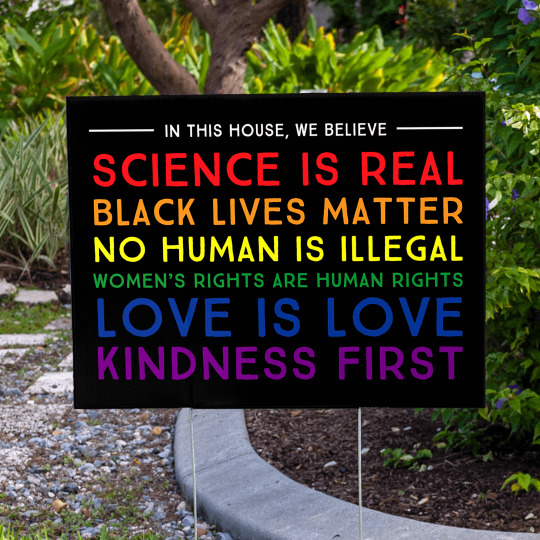
We thought, for instance, that our non-Jewish friends agreed that Liberal democracies were better for human rights than any form of government in the history of human societies. We thought they agreed that religious, racial, and ethnic intolerance were social ills which needed to be fought with information. We thought they valued data, reason, and reliable sources.
Since 10/7/23, we've been learning that we were mistaken. We've seen gentiles who we thought shared our values seem to discard those values.
We saw college educated friends share antisemitic (and alarmingly familiar) conspiracy theories about Israeli puppetry of US politics and the return of Nazi and Soviet antisemitic slogans/images.
We've seen highly educated "Liberals" preach ahistoric nonsense denying that the Jewish people are from the Levant and willfully ignoring the huge swaths of historical fact which don't support their favored narrative.
We've seen friends rage against "globalists" and "Zionists," when what they mean is 'Jews'.
We've seen people who we thought were allies against all forms of racism justify their racism towards Jews as righteous through specious reasoning like 'I don't hate Jews, just the 97% of Jews who believe that Jews should have self-determination in their homeland.'
We've been told that we cannot ask them to temper their use of antisemitic tropes, because doing so "weaponizes" concerns about antisemitism to obstruct them from their righteous crusade against the most evil nation on earth...which happens to be the only Jewish nation.
Despite this, about 80% of Jewish voters voted for Harris over Trump.
I think US Jews will continue to be Liberals, because Liberal values are dear to us and aligned with our values as Jews, as a historically oppressed minority, and as Americans who see more clearly than some others the gap between the promise of American liberalism and its long-delayed universal delivery.
The problem, I think, is in how many of our former friends simply aren't Liberals any longer.
I think Jews in the US need to spend a good deal more time scrutinizing the illiberal left.
Nine days after the attacks of 10/7/23, Jonathan Chait wrote:
Writers like Michelle Goldberg, Julia Ioffe, and my colleague Eric Levitz, all of whom rank among the writers I most admire, have written anguished columns about the alienation of Jewish progressives from the far left. I think all their points are totally correct. But I find the frame of their response too narrow. They are treating apologias for Hamas as a factually or logically flawed application of left-wing ideals. I believe, to the contrary, that Hamas defenders are applying their own principles correctly. The problem is the principles themselves.
...
Liberals believe political rights are universal. Basic principles like democracy, free speech, and human rights apply equally to all people, without regard to the content of their political values. (This of course very much includes Palestinians, who deserve the same rights as Jews or any other people, and whose humanity is habitually ignored by Israeli conservatives and their American allies.) A liberal would abhor the use of political violence or repression, however evil the targets.
...
The illiberal left believes treating everybody equally, when the power is so unequal, merely serves to maintain existing structures of power. It follows from their critique that the legitimacy of a tactic can only be assessed with reference to whether it is being used by the oppressor or the oppressed. Is it okay for, say, a mob of protesters to shout down a lecture? Liberals would say no. Illiberal leftists would need to know who was the speaker and who was the mob before they could answer.
...
One observation I’ve shared with many analysts well to my left is that the debate over this illiberalism and the social norms it has spawned — demands for deference in the name of allyship, describing opposing ideas as a form of harm, and so on — has tracked an older debate within the left over communism. Communism provided real-world evidence of how an ideology that denies political rights to anybody deemed to be the oppressor laid the theoretical groundwork for repression and murder.
There have been conscious echoes of this old divide in the current dispute over Hamas. The left-wing historian Gabriel Winant has a column in Dissent urging progressives not to mourn dead Israeli civilians because that sentiment will be used to advance the Zionist project. Winant sounds eerily like an old communist fellow traveler explaining that the murders of the kulaks or the Hungarian nationalists are the necessary price of defending the revolution. “The impulse, repeatedly called ‘humane’ over the past week, to find peace by acknowledging equally the losses on all sides rests on a fantasy that mourning can be depoliticized,” he argues, calling such soft-minded sentiment “a new Red Scare.” Making the perfect omelette always requires some broken eggs in the form of innocent people who made the historical error of belonging to, or perhaps being born into, an enemy class.
But more than three decades have passed since the Soviet Union existed or China’s government was recognizably Marxist. And so the liberal warning about the threat of left-wing illiberalism seemed abstract and bloodless. On October 7, it suddenly became bloody and concrete. It didn’t happen here, of course. The shock of it was that many leftists revealed just how far they would be willing to follow their principles. “People have repeated over and over again over the last few days that you ‘cannot tell Palestinians how to resist,’” notes (without contradicting the sentiment) Arielle Angel, editor-in-chief of the left-wing Jewish Currents. Concepts like this, treating the self-appointed representative of any oppressed group as beyond criticism, are banal on the left. Yet for some progressive Jews, it is shocking to see it extended to the slaughter of babies, even though that is its logical endpoint. The radical rhetoric of decolonization, with its glaring absence of any limiting principles, was not just a rhetorical cover to bully some hapless school administrator into changing the curriculum. Phrases like “by any means necessary” were not just figures of speech. Any means included any means, very much including murder.
Both Julia Ioffe and Eric Levitz have pointed out that decolonization logic ignores the fact that half of Israel’s Jewish population does not have European origins and came to Israel after suffering the same ethnic cleansing as the Palestinians. This is correct. But what if it weren’t? If every Israeli Jew descended from Ashkenazi stock, would it be okay to shoot their babies?
The problem is much greater than leftist antisemitism. The illiberal left has become nearly as great a threat to Liberalism as the far right.
It is often the case that a movement’s treatment of Jews serves as a broader indicator of its health. It’s not an accident that the Republican Party has become more attractive to antisemites as it has grown more paranoid and authoritarian. What the far left revealed about its disposition toward Jews is not just a warning for the Jews but a warning for all progressives who care about democracy and humanity. The pro-Hamas left is not merely indicating an indifference toward Jews. It is revealing the illiberal left’s inherent cruelty, repression, and inhumanity.
I'm annoyed that it is has taken me so long to catch on and alarmed by the implications.
I am, however, very proud of my 14yo, who sums up her experience trying to respectfully disagree with leftists this way:
"They're allergic to nuance."
#civil rights movement#liberalism#US History#jewish history#jewish american history#american jews#Jumblr#african americans#Black Americans#Illiberal left#far left#leftist antisemitism#leftist antizionism
451 notes
·
View notes
Text
Cock Worship with ES!Bumblebee
NSFW MDNI 18+
Gender neutral and sex neutral reader, racially ambiguous, oral, face fucking, sub reader dom Bumblebee, I’m so normal about Earthspark Bee I promise
Bumblebee’s pelvis twitched as his spike rested atop your face. He couldn’t hold back the smile that formed on his intake at the sight before him. Your eyes were wide open and practically heart shaped, your lips parted with gentle yet excited breaths passing through, and your form sitting so obediently on his berth.
He measured the length of his spike against your face for a moment. Bumblebee hummed in thought as he rubbed his cock against your face, his transfluid leaking from his tip down your forehead, nose, and finally across your cheek. He couldn’t hold back his amusement at seeing your chest moving in needy pants of air. The idea that you were so excited just having his spike laid over your face made a smug feeling wash over the mech.
“Cute,” Bumblebee cooed cupping the back of your head. “Do you want my spike?”
The way you jerked forward then stopped yourself from pouncing on his heated cable didn’t go unnoticed. “Yes,” you said breathlessly. “Yes! Please can I suck it?”
Bumblebee’s cooling fans jittered at your request. Of course he wants nothing more than to shove his spike down your throat and watch you struggle to swallow his overload but it was so fun watching you squirm and wait for him to order you around.
“Yeah?” He mocked while stroking the back of your head. “My desperate little slut wants to suck me off so bad?”
You clenched your fists against your lap and let out a whine. “Please!” You begged doing your best to stay still. “I want your cock, please!”
Bumblebee’s hips stuttered as his optics fluttered closed at your begging. You were going to be the death of him.
“Frag,” he groaned thrusting against your face. “You know I can’t resist you when you beg like that.”
He could hear your needy panting and practically see the heated air steaming out of your mouth. Bumblebee’s own excitement continued to leak down your face and he could tell by the way you licked around your lips you were desperate to have him in your mouth.
Bumblebee guided your head back as he pulled his hips away from you. His spike slid down your face until the tip made contact with your lips.
He could feel his spark throb in response to how you looked up at him with nothing but pure love as your lips puckered against his tip. Pink transfluid leaked down your lips and dribbled down past your chin. “Go ahead, Sweet Spark,” Bumblebee purred. “I’m all yours.”
Like a well trained pet told it can finally eat its food you dove onto Bumblebee’s spike. You grabbed around the girth of his phallic cable eagerly. You rubbed your hands up and down his spike as you panted in excitement. “Thank you,” you murmured as you pressed kisses to the tip of his spike. “Thank you.”
You ran your wet tongue along the length of his cock trying not to slobber all over the hot metal. Bumblebee chewed on the flexible metal of his lower lip trying his best not to lose his cool and start fucking your face. His door wings fluttered in bliss at the loving attention you payed to his throbbing spike.
His transfluid was spread all over your lips like a perversion of lip gloss.
You followed your tongue up his spike with wet sloppy kisses. There was no point on his thick throbbing cable that your lips didn’t touch. Every hot inch of metal was lovingly covered in spit from your licking and kisses. For you in this moment, his spike was everything. The baby blue biolights, the yellow flexible metal, the way it weeped pink fluids, and how Bumblebee’s own shaky moans echoed in your ears.
“Frag,” Bumblebee groaned watching you savor his spike. “That good?”
“Mmm,” you moaned running your lips up his shaft. “You taste so good. I wish I could just live off of your cock.”
Bumblebee punctuated how he moaned your name with a sharp swear. You were going to be the death of him.
“You’re just going to keep teasing me or are you gonna let me fuck that pretty little face?” Bumblebee groaned over his whirring cooling fans.
Your eyes lit up at his offer and you quickly dropped your hands from his shaft. You looked up at Bumblebee and opened your mouth invitingly for him to take whatever pleasure he needed from you.
“Primus,” Bumblebee moaned pushing the back of your head towards his spike. “You’re too good to me.”
With a sharp thrust of his pelvis he pushed his spike as far as it could go into your mouth. Your gagging only spurred him on. The slobber you produced around his cock mixed with the pink transfluid creating a foamy light pink liquid.
“So good,” Bumblebee moaned thrusting into your face. “You’re doing so good.”
You kept your eyes trained on his optics as you choked and sucked around the massive intrusion in your mouth. Your drool dribbled down your chin in an erotic streak of spit and transfluid. Bumblebee’s servo stayed steady on the back of your head as he thrusted into you trying to balance his neediness with not tearing your poor throat.
By now you feel like your body should have adjusted to his size. Your body should have molded itself to being the perfect pleasure doll for the mech.
You only looked up at Bumblebee with pure love in your eyes as he took whatever he wanted from between your lips. His own optics darted over your face suddenly feeling nervous at the unadulterated attention you gave him.
“Look at you,” Bumblebee groaned trying not to shove the rest of his spike down your throat. “Look at how good you take my spike. Primus what did I do to deserve such a-“ He cut himself off with a wailing moan as you hollowed your cheeks and tried to suck more of him in.
“Little slut,” Bumblebee laughed giving you a harsh thrust that made you squeak and gag. “You’re too much.”
His thrusts picked up in intensity as your eyes watered from the battering his spike put your throat through. You knew you’d be raspy and sore for a while but God was it such a pleasant reminder of what your lover did.
“I’m gonna overload,” Bumblebee moaned his thrusts becoming shaky. “Take it all! Primus I want to see you swallow it all!”
You did your best to move your head in time with his thrusting. You worked so hard for his release and you were going to get what you wanted one way or another.
His needy moans flowed through your ears like a symphony and his transfluid flowed into your mouth like liquid gold.
The acidic taste was difficult to get used to but now you practically wished you lived on it.
Bumblebee gave your mouth a couple tepid thrusts as you tried to swallow around his cock without choking. “Primus you’re so good,” Bumblebee moaned. He swore under his breath as he slowly slid his spike out from between your lips. You followed him trying to keep him inside of your mouth earning a low chuckle from the mech. He held your head in place so he could properly pull himself out from the warm grasp of your mouth.
Transfluid leaked from the corners of your lips and dribbled down your chin. You gave a couple coughs when Bumblebee finally pulled out of you.
“You look wrecked,” Bumblebee laughed his faceplate flushed blue.
You licked around your mouth earning a low groan from the yellow mech before you. “I wanna warm your spike,” you said in a raspy voice.
Bumblebee hissed feeling his over stimulated spike twitch at the idea. “No,” he replied giving your head some gentle pets. “I don’t want you to go completely voiceless.”
You nodded trying to hide your disappointment and instead opted to grab his servo and nuzzle your face into it.
“I love you,” you rasped.
“I love you too.”
#transformers#earthspark#earthspark bumblebee#bumblebee#valveplug#swerve x reader valveplug#bumblebee x reader#bumblebee x reader valveplug#bumblebee valveplug
216 notes
·
View notes
Text
Laios, Monsters, & Toshiro: On Racialized Desire and Identification with the Other
Arguably, the most significant part of Laios' character is the societal ostracization he faces because of his non-normative interests and behavior. For the majority of his life, Laios struggles socially, and other humans mistreat him. When he rescues Marcille from the Nightmares, his nightmare dredges up his inability to fit into school and the army. During his early dungeoneering days, he's lied to and exploited by his fellow party members.

One of his earliest and most formative negative experiences with people is his village's abuse of Falin as a magic user. He shares that after the villagers discovered that she can use magic, "adults who were just kind yesterday, all began to bully [her]." Instead of protecting Falin, his parent tell her to leave the village. The prejudice Falin faces and his parents' response to it upsets Laios to the point that he leaves home.

While Laios cares about his friends, the Demon points out that Laios understandably does not care for people in general. Laios doesn't disagree with the Demon's assessment and suspects that the Demon "can sense all [his] thoughts." The Demon goes on to say that Laios actually "despise[s] all humans." Laios denies this assessment, but given the Demon's uncanny ability to sniff out people's desires and Laios' ashamed expression, at least part of Laios likely agrees with the Demon. It's not a stretch to assume that he's held onto some hurt and resentment towards humans due to their mistreatment of him and Falin in their youth.



In response to how human society has othered him, Laios distances himself from humans and invests his time and energy into monsters and demi-humans instead. In the DunMeshi world, monsters and demi-humans are the ultimate societal Other. People fear them, exploit them, and even hunt and kill them. As someone who's similarly been mistreated by human society, Laios resonates deeply with monsters.
His desire to become a monster and/or beastman reflects his desire to reclaim agency over how society has ostracized him. If he chooses to become a monster, he gets to place value on what society has deemed despicable. He gets to choose why society hates him and be different on his own terms.

Both textually and thematically, Laios' identification with the Other bleeds into the erotic. More blatantly, he says that he'd have sex with orc women, and his succubus is a monstrous version of Marcille.


The entire story is also steeped in the theme of consumption as carnality. Laios and his party spend the entire manga eating monsters — a taboo physical act which they reap pleasure from; the underlying eroticism isn't difficult to see.
The story also presents consumption as a form of extreme identification. Eating a monster makes the monster part of you through digestion. The line between consuming the monster and becoming the monster — between erotic desire for the monster, demonstrated by eating their flesh, and identifying with the monster — is very blurred. Note that digesting a monster is an act of absorption; it destroys the original creature. Senshi states that consuming a monster erases "its individual identity," and major manga spoilers, but Laios defeats and pacifies the Demon by consuming its desire to eat. We'll come back to this concept later.

As previously mentioned, Laios is disinterested in most humans. The notable exception to this rule is Toshiro and by extension, the Eastern Archipelago. Laios doesn't seem to know much about the Archipelago before speaking to Toshiro, so he isn't drawn to Toshiro because he's an Easterner. Instead, he's drawn to his "odd appearance."

Just like Laios views monsters and demi-humans as a visible Other, Laios views Toshiro as another visible Other. On the Island, Toshiro stands out as a foreigner at first glance. While Laios as a white tallman doesn't appear visibly strange to other people, he's drawn again and again to people and creatures who are immediately visibly "odd." He sees them as understanding what it's like to be different and be mistreated for it, and since he relates to that experience, he wants to learn about them and be closer to them.
Essentially, Laios behaves towards Toshiro and his culture the same way he behaves towards monsters; he wants to know everything about Toshiro's foreign culture — the thing which makes him different. Unintentionally, Laios unintentionally reduces Toshiro to being Japanese; if he wasn't Japanese, Laios would never have approached him.

While Laios doesn't have bad intentions, as Toshiro himself acknowledges during their fight, his behavior towards Toshiro still has negative consequences. Laios' harmless interest in monsters translates to fetishization in the context of Japanese culture. He enacts multiple microaggressions against Toshiro and crossing his boundaries.
Laios goes beyond merely learning about Japanese culture. He takes parts of it for himself when he names his sword a Japanese name. Akin to his consumption of monsters, Laios attempts to participate in Toshiro's culture while failing to respect Toshiro himself. Just as eating monsters destroys them, Laios consuming Toshiro's culture while enacting racism against him causes real harm.
Many people have already written about Laios' microaggressions towards Toshiro, but a couple include Laios telling Toshiro that he looks "odd" and asking where he's from, mispronouncing his name as "Shuro," and assuming his favorite food is rice. Laios' treatment and fetishization of Toshiro is racist and harmful. However, I'd like to dive beyond the surface of Laios' micro-aggressive remarks and examine how his obsession with Toshiro becomes a racialized mode of desire, paralleling real world phenomena.
Though no concrete canonical evidence of Laios' feelings towards Toshiro being romantic and/or sexual exists, his interactions with Toshiro have erotic undertones. Their fight dialogue, in particular, revolves around eating, an act the story consistently shows as carnal. During this fight, Laios places his thumb in Toshiro's mouth and asks him, "What's the point of even having a mouth?" Laios' penetration of Toshiro's body via his mouth and his question's potential as an innuendo lend themselves to an erotic reading of the scene's more obvious conflict. Considering the overlap between consumption and carnality throughout the story, it's not a large jump to read eroticism into Laios demanding Toshiro meet his body's physical needs.


Furthermore, Laios is more enthusiastic about Toshiro than any other human in the series. While he cares deeply about his sister and his friends, Laios repeatedly expresses how much he admires Toshiro. He retains and brings up things like Toshiro's (perceived) favorite food. He wants to go to the East in Falin's place after she rejects Toshiro's marriage proposal, and in the "What-If" extra material, he's adamant about setting up a scenario where Toshiro travels with him through the Dungeon.

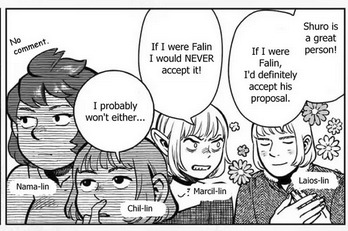

Undoubtedly, Laios is drawn to Toshiro. Since he sees non-white-ness and monstrosity as equivalent markers of societal othering, Toshiro's identity as a foreigner is what cultivates and maintains Laios' interest in him. Even if Laios learns to care for Toshiro as a person, his desire for Toshiro, platonically or otherwise, is still filtered heavily through race within the narrative.
Laios' relationship with his masculinity is also fraught. He broke off his engagement with a girl from his village and doesn't express normative interest in female tallmen. Seeing how the nightmare versions of his parents ask him when he's going to give them grandchildren, Laios experiences societal pressure to conform to a normative performance of masculinity through being attracted to and marrying a tallman woman and creating a family with her.
Laios frequently talks about how cool and admirable Toshiro is when he performs masculinity through combat, etc. He might find Toshiro's Asian masculinity more appealing and more accessible to him than the masculinity that's been forced onto him, precisely because Toshiro's Asian masculinity appears non-normative in a Western lens. But co-opting the masculinities of men of color as a white man would only further feed into the white consumption of cultures of color.

Overall, Laios' entitlement to and consumption of Toshiro's culture mirrors the real-life way white people co-opt and fetishize non-white cultures. Laios' fetishistic treatment of Japanese culture, because of his attraction (platonic or otherwise) to Toshiro, parallels white people's treatment of Asian people in the Western diaspora. I can only speak on the Asian American experience, but Laios immediately being drawn to Toshiro's "odd appearance," obsessing over his culture, and primarily treating Toshiro as a conduit for his said culture feels eerily close to how some white anime and/or K-pop fans act towards Japanese and Korean people.
Similarly to Laios, real queer, neurodivergent, and/or otherwise non-normative white people are marginalized by white Western society. They relate to how society others non-white cultures and/or people of color and latch onto them. While forming human connections based on curiosity and shared experiences is wonderful, white people are often unaware of the racial dynamics at play when they engage with non-white cultures and people of color and unintentionally, end up consuming and fetishizing non-white cultures in detrimental ways.
None of this negates the reality that Laios and Toshiro canonically care for each other. For instance, Toshiro's willingness to hug Laios reveals his genuine familiarity with and affection for him. The racial dynamics of their friendship complicate their relationship in fascinating ways and open up a potential path for Laios' growth. With time and effort, Laios could absolutely unlearn his racism and become a much better friend to Toshiro.

In conclusion, Laios' behavior towards Toshiro is a study in a marginalized white person's identification with and racialized desire for a non-white Other and how even a well-intentioned attempt at connection can replicate harmful racist dynamics. Toshiro's experience with Laios closely parallels real Asian people's struggles with racism and fetishization in our world today.
#laios touden#toshiro nakamoto#shuro#dungeon meshi#dunmeshi meta#dunmeshi analysis#i didn't want this to be superrr long but laios' treatment of the orcs is similar to his treatment of toshiro#he takes their cultural practices out of context and appropriates them (i.e. him wearing spoils of war when he declares himself king)#frankly him wanting to be an orc/wanting to sleep w orc women/appropriating their culture#and blurring the lines between identification/desire/consumption is even more clear than w toshiro#ryoko kui has a lot of interesting racial commentary in her work#but also she kinda flops on her depictions of black and brown ppl#anyw all very interesting to examine#i love u themes of consumption and desire and identity and borderline cannibalism#dunmeshi#delicious in dungeon#*mine#*meta
336 notes
·
View notes
Text
its insane how you literally can't talk about the oppression caucasians face (what was the last time you read about the genocide or imperialist aggression caucasian people went through? actually?) without an american/westerner piping up with "umm... lol... you think White people are oppressed? lol"
Isn't it crazy how people use caucasian to make fun of white people while literally Completely erasing the struggles of a racialized group? Isn't it crazy how no one cares and people keep doing it without batting an eye? And isn't it crazy when you try to look up something about caucasians you get stupid ass articles about "are white people opressed or not? are white people entitled? are white people this or that?"
#and before someone says something stupid again\#Yes. Among caucasian ethnic groups there are what you would consider “white people”#but if you do not actually know shit about caucasians and the diversity of ethnic group in the caucasus you do not get to generalize#because it is markedly not true#if you don';t know shit#about the armenian genocide#circassian genocide#the chechen wars#the racialization SPECIFICALLY AGAINST people of caucasian identity (in countries like russia)#the imperialist conquest of caucasian people#among many many other things#you do not get to speak#and i am by no means proclaiming myself to be an expert on this topic#but i live the reality where my caucasian friend is routinely denied the ability to rent an apartment#and i come online and americans talk about stupid shit like#umm... how are caucasians oppressed... you think white people are oppressed??? are you stupid/? lol
130 notes
·
View notes
Text
It has to be said
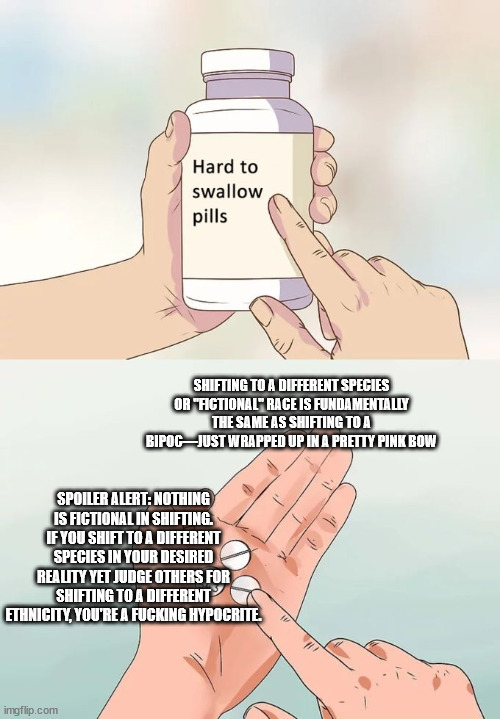
Let’s cut the bullshit. You can’t sit there and preach about how "wrong" it is for someone to shift into a BIPOC identity while you’re out here shifting into some "fictional" race and acting like it’s all good.
Newsflash, asshole: It’s the same damn thing. Shifting into any race—real or fictional—comes with its own set of cultural, historical, and ethical baggage. If you’re gonna throw shade at someone for exploring a BIPOC identity, then you better be ready to throw shade at yourself for shifting into that elf, Na’vi, or whatever the fuck else you’re fantasizing about.
Here’s the deal: Whether you’re shifting into a BIPOC identity to understand a different version of yourself or diving into some fantasy race that’s basically a watered-down version of real-world cultures, you’re engaging with the same concepts. The only difference is that one makes you uncomfortable because it’s closer to home. But if you think you can hide behind a “pretty pink bow” of fiction to justify your shifts, then you’re just fooling yourself.
You want some examples? Here they are:
1. The Na'vi from "Avatar": The Na'vi are a blatant allegory for Indigenous peoples who have been fucked over by colonization and cultural erasure. Their culture, spirituality, and even physical appearance are deeply inspired by various Indigenous cultures. Shifting into a Na'vi and then having the nerve to criticize someone for shifting into a BIPOC identity is straight-up hypocrisy. You’re enjoying the "noble savage" aesthetic while turning a blind eye to the real-world struggles that inspired this fictional race.
2. X-Men (Mutants): The mutants in the X-Men universe are a metaphor for marginalized groups, particularly racial minorities and the LGBTQ+ community. They experience discrimination, fear, and oppression, just like BIPOC people in the real world. Shifting into a mutant identity and then shitting on someone for exploring a BIPOC identity? That’s some next-level hypocritical bullshit. You’re playing out a power fantasy of fighting against oppression while ignoring the very real struggles that others are trying to explore and understand through their shifts.
3. Twi’leks and Other Star Wars Aliens: Twi’leks and other alien species in "Star Wars" often have exaggerated features that mirror ethnic stereotypes, and their treatment in the narrative often reflects colonial attitudes. Shifting into these aliens while criticizing someone for shifting into a different race is absurd. You’re embodying a fictional race that’s a clear stand-in for real-world marginalized groups while trying to police how others choose to explore their own identities.
4. The Fremen from "Dune": The Fremen are depicted as desert dwellers with a deep connection to their land and a fierce resistance to imperialism, drawing heavily from Middle Eastern and North African cultures. Shifting into this race while bashing someone for shifting into a BIPOC identity is a prime example of enjoying the exoticism of another culture without acknowledging its real-world significance.
2. Elves in Fantasy Literature: Elves are depicted with exaggerated European features—tall, slender, sharp, angular faces—basically the "Aryan" beauty ideal cranked up to eleven. The romanticization of these features, while totally ignoring their roots in racist purity movements, is downright disturbing.If you’re shifting into an elf while slamming someone for shifting into a BIPOC identity, you’re perpetuating a fucked-up double standard. You’re engaging in a fantasy that upholds white-centric beauty while denying someone else the right to explore a version of themselves that aligns with a BIPOC identity.
The real issue isn’t about whether it’s right or wrong to shift into a different race; it’s about the double standard you’re applying. If you think it’s okay to shift into some fantasy race but not a BIPOC identity, then you’re the one with the fucked-up priorities. Shifting is all about exploring different versions of yourself, whether that’s through race, species, or whatever. So, stop being a fucking hypocrite and either accept it all or shut the hell up.
Next time you wanna criticize someone for race shifting, take a look at your own damn shifts. If you’re doing the same thing under the guise of “fantasy,” then you’re just as guilty of the shit you’re trying to call out. Stop acting like one is more acceptable than the other. Either own your shit across the board or get off your high horse.
This kind of hypocrisy shows that you’re more comfortable with the idea of exploring different identities when they’re wrapped in a "pretty pink bow" of fiction, but you balk at the idea of someone exploring the full spectrum of human experience, including the struggles and strengths that come with being BIPOC.
No more excuses. It’s time to face the reality of what you’re doing and start thinking critically about the implications of your shifts. Stop hiding behind the fantasy and start acknowledging the real-world context of the identities you’re exploring.
#reality shifting#shiftblr#desired reality#shifting#shifting community#shifters#shifting realities#reality shifter#shifting antis dni#shifting memes#reality shift
199 notes
·
View notes
Text
WARNING: you will need the most basic understanding of feminist terminology, literature and concepts to understand the following post, I have not made this uneducated-proof. I have had people get mad at me for this before, so here's the warning.
I think what's happening in Afghanistan right now really shows what feminists mean when they say "women are seen as a sub-category of men, rather than a separate class", and by extension, it shows how on a global scale, women are still seen as property. It also kinda demonstrates what De Beauvoir was talking about when she said women see themselves as the other, rather than the absolute, unlike other groups.
Women do not have as much class consciousness as they should, and are kept isolated from one another, told to divide first by class, race, religion etc, rather than acknowledging they are all women, and they are all treated as property of a man, an obtainable object, a collectable, regardless of class or race. Women have never been separate from men, they have never been independent as racial groups can be. There is no escape from men outside of eventual death for a group of women. This is due to the nature of women and men being reliant on one another for the creation of a group that lasts more than one generation. Women are seen to have no culture of their own, as it's only a sub-culture of men of that group. Men are almost always somehow involved in any female action/culture, because of women's isolation from one another and inability of escape. Women are viewed as property because they are only a part of male life and male culture, men is the whole and women are a part, women's part still belongs to the men. Women are not individual cultures.
The entirely male-run government in Afghanistan can treat the women of that country however they like, because those women belong to them. That is why it wouldn't be the same with another minority or ethnic group. Women, as a subcategory of men, when not considered their own social class, have no individual rights over how to be treated. A man can make rules for how women should behave because women are the property of, or included within men. A part of man. They essentially don't deserve the sovereignty that racial and religious groups are granted.
This is why human rights tend to not act the same way, it's as if there is no group being denied rights at all. To the globe, its just Afghans, the Afghan government and it's property, or it's citizens, rather than men and women. It is just men and women. Male government controlling women who cannot participate in the law, but are victim to it, like animals, or livestock. Not citizens.
I will state as well: I do not mean for any of this to underestimate the struggles of racial/ethnic groups as a minority. I believe the struggles of each oppressed group is different, it's causes and effects, and should be treated as such. Those groups deal with different issues which women, as a sex class may not. I'll also mention, there are other groups which may be treated in this same way, such as disabled people, children etc. also i hope this post makes sense
#radical feminist safe#radical feminists do interact#radical feminists do touch#radical feminist theory#radical feminist community#terfsafe#trans exclusionary radical feminist#radical feminism#radblr#radical feminists please interact#radical feminists please touch#afghanistan
174 notes
·
View notes
Text
I think in Wicked (the musical at least – not sure about the novel), there's a bit of an uneasiness between the theme of "everyone is morally gray, no one is all bad or all good" and the fact that Elphaba is a freedom fighter against a fascist government that commits atrocities against a minority group.
Yes, the Wizard has some sympathetic qualities, Elphaba has some flaws and briefly turns to villainy toward the end, and Glinda is a mass of moral grayness under her perky pink facade. But for the most part it's clear who the villains are (the Wizard and Madame Morrible), Elphaba's stance against them is clearly heroic, and Glinda's choice to work for them is clearly a moral sell-out, with which she struggles and from which she eventually redeems herself. When the Animals' treatment parallels the treatment of Jews in Nazi Germany, you can't take a "both sides" view of the situation. But every now and then, the show seems to do just that – whether in the song "Wonderful" with the Wizard's talk of "moral ambiguities" (though of course in that song, he's trying to justify his actions and manipulate Elphaba into joining him), or Elphaba and Glinda's reconciliation in "For Good," where they paint themselves as having been equally at fault. And again, and again, I've heard people say "There are no real villains in Wicked: the whole point is that there are two sides to every story and neither side is all good or all bad." But if that's the intended message, does it honestly fit with a plot that involves fascism and racial persecution?
Another work of fiction that I think has some uneasiness between its themes is Disney's Beauty and the Beast. Namely between "the Beast as a suffering, misunderstood outcast" and "the Beast as a powerful bully who needs to be humbled and change." I think a lot of the controversy about that movie stems from the uneasiness between those two themes.
On the one hand, the Beast is a spoiled, selfish prince, who was cursed as punishment for shutting out a poor beggar woman, who has a terrifying temper, and who orders others around and throws tantrums when he doesn't get his own way. His beastly appearance and mannerisms can be seen as outward symbols of his bad behavior, which is based in toxic class privilege and masculinity. From this perspective, Gaston is his kindred spirit, which is emphasized by visual cues: e.g. their similar striking blue eyes, or Gaston's pelt-covered, horned chair in the tavern that looks like the Beast's silhouette. The difference between them is that the Beast finally realizes he was wrong and changes his ways, while Gaston only becomes more beastly. But on the other hand, the Beast is also an "other", who hides from the world, who struggles with basic social skills, who is full of insecurity and self-loathing, whom Belle bonds with because they're both misfits, whose bestial mannerisms and overpowering rages are at least partly because the spell is warping his mind (in other words, a magical mental illness), and whom a mob tries to murder just because he looks scary. Analogies have rightly been drawn between the Beast and victims of racism, homophobia, or other prejudice. From this viewpoint, Gaston is his opposite: the type of privileged boor who receives undeserved hero-worship just because he's handsome and charismatic, and who persecutes "others" like the Beast.
When people view it chiefly as a story about the taming of a powerful bully, you hear accusations of "Stockholm Syndrome" and of the dangerous fantasies of changing an abuser. Viewing the Beast as a misunderstood outcast, who finds acceptance in a fellow outcast and who overcomes his mental health struggles and bad coping mechanisms as a result, reduces those accusations. But if you view the Beast chiefly as a misunderstood outcast, then his character arc can feel disempowering: so much of it consists of learning to be more people-pleasing and self-effacing, not to mention re-learning "normal" human manners and behavior (as an autistic person, I know I've sometimes felt "He needs to mask to be loved"), and he becomes fully "normal" by becoming human again in the end.
Maybe there is no uneasiness between these different themes: maybe it's just complexity. Maybe my feelings on the subject shows that I'm autistic and struggle with things that aren't black-and-white. But in both of these works of fiction, I do sometimes feel as if the writers were trying to tell two different stories at once, which sometimes fit together, sometimes not.
Does anyone else feel that way about other works of fiction? Can you name any other stories with multiple themes that seem slightly opposed and uneasy together?
79 notes
·
View notes
Text
Lucifer is the adversary, but he is not a contrarian.
Although he often plays the role of the devil’s advocate, even going as far to say things he doesn’t believe for the sake of debate, he is not the God of opposites.
This is something I think about a lot in regards to punk culture and conservatism. There’s a group of conservatives who mistake punk culture with contrarianism. They think to be punk means to be the opposite of the mainstream regardless of what is mainstream. If it’s socially acceptable to be gay, it is now punk to be homophobic. If it is socially acceptable to be black or some other racialized minority, it must be punk to be racist. It must be punk to wear swastikas because it’s against the norm.
And these people don’t understand that the goal for punks was never actually to be outcasted. In fact the punk community was founded by outcasts who wanted to experience togetherness. Bonding over their shared struggles and rejection from mainstream society. Queers and neurodivergent folks, and disabled folks, racialized folks etc, could all meet in punk spaces and be unapologetically atypical. They gained power from coming together and recognizing their shared struggles, pinpointing systematic disparities that create these struggles, and forming coalitions to resist colonial capitalism and cultural divisions. Mainstream society demonizes anything atypical, and so the punk scene is considered deviant. Not because they do evil things or harm people, but because they have completely rejected the acceptable formula of existing in society.
While there are many myths about Lucifer or Satan just being an agent of evil and chaos for the sake of causing misery, when I think about Lord Phosphorus, the light bringer, liberator, God of freaks, and how he is not the God of contrarianism, I remember that his goal was never to be the outcast, despite what people say.
He happened to become the adversary because the basic principles he embodies fundamentally challenge the doctrine of supremacy that many societies and religions are built on. To be an agent of self determination and worship in a world where belief and submission to the one true God is expected, you will naturally be seen as an agent of evil, a deceiver.
I’ve spoken before about how I have been completely outcasted from my family due to my queer identity, alternative appearance, and fringe religion. The scariest thing I’ve encountered on my journey with Lucifer hasn’t been demons or monsters, but the negative opinions of humans.
And Lucifer asks me all the time, are you prepared to be the scapegoat? Are you comfortable being evil?
And my question to that has always been, am I evil? How can I be evil when I try my best to not cause anyone harm? Why am I evil when I do not do evil things?
And he would tell me, “evil is not a factual assessment, it is a label, an opinion placed upon you by others to contrast with their understanding of “good”. No matter how much good you do, no matter how many people you help or save, you will never escape this evil inside you, because you will always be a freak, an outcast, one of my lovers. It is the essence of who you are. Your goal has never been to shock or disgust these puritans. You never sought to make yourself an adversary to them. It is because you are mine, you cannot help it nor resist it, because you will always be an adversary to the doctrine that keeps them comfortable. You will always be a reminder of its flaws. So I tell you, my boy, never to fear this evil. I suggest you wear it proudly, for it will forever be the word that is ascribed to you, even if it isn’t true. It is far more terrifying for these people to imagine that there might be goodness in your heart when you embody everything they fear. Until people like you can be seen as human, we will all be demons.”
There is no solution to this dilemma, other than to accept how I am perceived and continue to do good. Most punks I’ve met have been some of the kindest and selfless people I’ve ever met. It’s punks who I see giving food and shelter to the homeless, offering mutual aid and community support.
Maybe once you stop caring so much as being seen as good, you become more concerned with actually doing good.
#pagan#paganism#luciferian#luciferian witch#lucifer devotee#theistic luciferianism#demonolatry#witchcraft
74 notes
·
View notes
Text
If anything, the 2024 election season in the United States has demonstrated that the multicultural ruling elite—including but especially those of a liberal stripe—have no intention of solving the many crises of its own making. On the contrary, their role is to manage “through brutality,” the contradictions of a global necrocapitalist order. To suggest there are identifiable patterns cyclically reproduced by a colonial capitalist world order is not to encourage a sense of hopelessness but a sense of clarity, a grounding toward what can and cannot be accomplished within the given regimes of liberal redress. The Zionist mass extermination campaign in occupied Palestine, with the open and active participation on the part of the liberal democracies of the West, exemplifies the reality that liberalism need not fascism to carry out its regimes of racialized horror intrinsic to Western civilization. Liberalism, in its own right, efficiently exports perpetual violence and war—through occupations, aerial warfare, and economic terrorism—that is largely proclaimed to be exclusive to twentieth-century, or more recently, Trumpian fascism. And yet, every region on the receiving end of Western liberal democracies’ deadly exports of democracy and freedom is left with mass corpses and new avenues of extraction and accumulation that enrich Euro-American cities. Despite this, liberalism—due to its strategic attempts to position itself as the benign alternative to far right-wing tyranny—is widely believed to be a benevolent institution, political ideology, and therefore a willing ally to the concerns of and political struggles from below. However, a thorough internationalist investigation of the machinations and material outcomes, specifically as it pertains to the working poor, of liberal democracies paints a vastly different reality while also demonstrating the inefficacy of the ballot towards remedying these outcomes.
[...]
The baseline, permanent state of U.S. politics, specifically but not exclusively at the national level, is that of right-wing dominance. The broadest understanding of American history only proves this—including the last 40 years of neoliberal hegemony, an explicitly brutal right-wing enterprise. A fruitful question we should all ask, is at what point has the U.S. political and economic system ever worked in accordance with the masses of its people? Think about it. During its Indigenous slaughter campaigns that made way for the creation of the modern nation-state? Or, during the worldmaking and world-breaking regime of racial-chattel slavery—in which stolen African labor was directly pinned against that of the labor of the white working poor? Or maybe the Jim/Jane Crow period which oversaw even more destitution and suffering for Black-African people than that of its predecessor? Or, any period since the early 1900s—sans the short-lived era of the New Deal (which was not only brief but exclusive i.e., neglected much of the racialized and poor in its material output)? Many well-meaning people have tried to do good work holding political office. But how much does one’s morality matter in a capitalist political system that is beholden to the interests of the finance-corporate sectors of civil society?
3 November 2024
131 notes
·
View notes
Text
i don’t want those writers handling poc characters again.
i just hate that mel merdada is a black character in arcane and that it doesn't matter. i hate the lack of racial politics in arcane. i hate that arcane tries to tell a story where oppression exists but without one of its key historical and social components. i hate the "race-blind" approach to oppression in arcane.
but what i hate the most is how people would rather mischaracterize mel (cognitive dissonance around representation ig?) rather than discuss how she’s black in a race-blind but oppression-filled world, and not let the writers off the hook for that choice.
because no, she was never an ally to zaun and no, she’s not "the only councilor who cared about zaun".
throughout most of the show, mel remains passive regarding zaun’s struggles. she only begins to show concern for zaun in a very limited way, and even then, her push for zaun’s independence isn’t driven by any moral awakening. it’s a strategic move to prevent war. her motivations are largely selfish (not necessarily in a wholly negative way tho). her trauma from noxus makes her deeply averse to war, and she acts accordingly. but the systemic oppression? that never truly bothers her.
more importantly, mel is not an ally to zaunites, nor does she see them as equals. her only interaction with one of them (viktor) makes this clear: she never directly addresses him when discussing his and jayce’s invention (hextech), and she even suggests weaponizing it against zaun, disregarding viktor’s presence as if he were insignificant. the animation even reinforces this dynamic, visually positioning mel as bigger and viktor much smaller.
then comes season 2, which totally detaches mel from politics altogether. the show turns her into a magical girl, pushing her away from the role of politician she previously occupied. she essentially "mary sues" her way out of the war, killing the primary antagonist (ambessa) that everyone, including the zaunites, was fighting against. this conveniently absolves her of any lingering complicity in zaun’s oppression, making it super easy for the audience to forget that she was never actually their ally. and more importantly, her views on zaun never evolve or deepen. the version of mel we get in season 1 is the only version we ever see when it comes to her stance on zaun.
67 notes
·
View notes
Text

Satisqueer


Satisqueer (or problaqueer) is a queerstance that focuses mainly on receiving people rejected by the community, this includes the paraphilics, subs(edtwt, sh etc) among others. It mainly intends to break social constructions, gender roles, heterosexuality and cisnormativity, taboos in relation to anything and especially welcoming people regardless of how they are like every queerstance should be!
Satisqueer uses a lot of empathy and acceptance of all types of identity, disorders, defense mechanisms and many others.

Pro:
Controversial identities (straight-lesbian, lesbian who likes man, turigirl).
Alterhuman, otherkin(foodkin, objectkin, kin in real people).
Paraphilias(taboo or not).
Endo, transplural and created system.
Non-monogamy.
Relationships between lesbians and men or gays and women.
extreme body modifications.
Pro-contacts of CONSENSUALS parafilias.
Sh, suicide and eating/mental disorders as artistic performance.
Mad pride and anti-assylum movement
Autonomy on your own body (including abortion).
Consensual cannibalism.
Self-diagnosis / self-identification and any type of systems.
mechanisms of unhealthy copings such as the romanticization of traumas.
obsessive, abusive consensual and/or mutual relationships.
Proship, comshipp and pro fiction / anti censorship.
Furry and other harmless communities.
Communism and anarchism.
ACAB (1312).
Feminism.
Legalization of all drugs.
Blm and other movements of racialized people
Sex workers.
Xenogenders, stetigenders, lexics, allions, vior, perspeque...
Xenosexualities and parasexualities.
RCTA
Transpara (transid in general).
Transition to trace.
Transautistics use identification badge/transable use wheelchair/crutch (things that match their disability).
Identify with things for fun (even though they are harmful).
Ed/shtwt among other subs.
MIF (minors in fetichism).
Incest (consang or not).
Radshifters.
Mahou shoujo irl.
Radqueer.
Sexual education/ children know their own body.
Loli, shota, kodo and nanacon.
Ageplay, petplay, rapeplay etc
CNC
Autopara (autopedo, autozoo, etc)
Fictosexuality
MUDs
Lie to the psychiatrist/psychologist or professional who is consulting you about your symptoms to get a diagnosis or for your own benefit
Not having a specific age to diagnose disorders (such as ASPD, borderline, DID or other disorders that "can only be diagnosed at 18 years old")
Complex-c
Neutral:
MUDs
MAP (just if the minor is 14+).
Claim and resignification of insults and offensive terms.
Transition to transharmful
Symbol of the puzzle to represent autistic people.
Imoqueer.
Inclus.
Pro-c
LSDqueer, basedqueer, kandiqueer, xenosatanism and similar.
anti:
CP/CSEM/CSAM.
Anti-therian
Bullying and harassment.
Conservatives, rightists, especially Nazis, fascists and capitalists.
Transmed
Sysmed
Cis/heteronormatividade against LGBTQIAPN+ people (ex: invalidating a trans boy for dressing in a “feminine” way and wearing makeup)
Radfem, radgay, genitalists, transphobics, exorsexists, binarists...
Misogyny, misandria and femism (not feminism) and similars.
Religious intolerant

Identification emoji idea:
🫧🌈 /🗂🌈 /🌈🌪
CURIOSITY: where did the idea of the name Satisqueer and problaqueer come from?
“Satis” comes from Latin, and means “quite” - who chose this name was lilico - and "probla" its from "problematic", indicating that we include a lot of communities, regardless of how problematic or bad they are (no matter how ‘shat’ it is). We fight mainly against cis/heteronormativity, transmed, capitalists and moralistic people.
No one is better than anyone else and has no wrong way to express themselves, identify or deal with their problems, I believe we should claim this label with pride, embrace the unusual and inconvenient ways of dealing with things as part of our identity and struggle.
Creator of the term: meee :3 (with the help of @transidiotloli )



#Satisqueer#pro rq 🌈🍓#rad inclus#rad queer#rq 🌈🍓#rq 🍓🌈#rqc 🍓🌈#pro 🍓🌈#radqueer 🍓🌈#radquer inclus#radq interact#radq safe#satisqueer interact#satisqueer safe#inclusionist#inclus#queer community#queer pride#queer term#problematic#inclusion#mogai coining#mogai term#mogai community#contradictory labels#transid please interact#transid safe#pro transid#antis dni#anti anti
90 notes
·
View notes
Video
youtube
5 Crises Republicans Made up to Distract You
Here are five totally made-up “crises” Republicans have invented to distract from the real crises facing Americans today: the growing concentration of wealth, the worsening climate crisis, and the undermining of our democracy.
Fake crisis #1: Anything they claim is “woke.”
Although Republicans struggle to define what “woke” even means, they’re constantly using it as a weapon to combat anything that seeks to foster tolerance and acceptance.
Pride flags? Woke!
Books about Rosa Parks? Woke!
Green M&M’s? The wokest!
Fortunately, most Americans think being informed and aware of social injustice…which is what being “woke” really means... is a good thing.
Fake crisis #2: The panic over trans people.
Trans people just want the right to exist safely as their true selves, like everyone else. And despite the lies spewed by some Republicans, there’s not a shred of evidence that they are a threat to anyone. But they’ve become easy scapegoats for the GOP, who vilify them and threaten to criminalize their very existence.
Fake crisis #3: Critical race theory
In reality, critical race theory is mostly taught in universities — like quantum physics or philosophy. It's really not taught in K-12, nor is it dangerous.
It’s merely a framework to understand the role that race and racism have played in shaping America’s laws and institutions. But Republicans have deliberately turned this obscure academic phrase into a weapon to silence any discussion of race they don't like.
Unfortunately, this includes teaching many basic historical facts.
Fake crisis #4: “Couch potatoes.”
Republicans are whipping up anger over welfare recipients supposedly abusing the system.
The reality is most people who collect benefits already hold jobs and work exceedingly hard.
Like Ronald Reagan’s claim about so-called “welfare queens”, the “couch potato” myth is a cruel racial dog whistle. In fact, the vast majority of Americans who receive government benefits are white.
We should be asking why so many jobs pay such low wages that workers need government help to get by?
Fake crisis #5: “Out of control government spending.”
Another lie. Apart from mandatory spending like Social Security, Medicare, and Medicaid, government spending has actually fallen more than 30% in the past 50 years as a percentage of our total economy.
[9.6% in 1973 vs. 6.6% in 2022, a decrease of 31.25%]
Yes, the national debt is a problem, but in recent years, among its biggest drivers have been the Bush and Trump tax cuts, which have added nearly $10 trillion to the debt since their enactment.
All five of these so-called crises have been manufactured by the GOP. They’re entirely made up.
Why? To deflect attention from the near record share of the nation’s income and wealth now going to the richest Americans.
As the wealthy pour money into politics — largely into the GOP — they don’t want the rest of America to notice they’re rigging the economy for their own benefit, that their greed is worsening the climate crisis, and they’re undermining our democracy.
So the game of the Republican Party and their major donors is to deflect attention — to use fake crises to disguise what’s really going on.
Don’t let them get away with it.
782 notes
·
View notes
Text
The New York Times once dubbed the Princeton professor Robert George, who has guided Republican elites for decades, “the reigning brain of the Christian right.” Last year, he issued a stark warning to his ideological allies. “Each time we think the horrific virus of anti-Semitism has been extirpated, it reappears,” he wrote in May 2023. “A plea to my fellow Catholics—especially Catholic young people: Stay a million miles from this evil. Do not let it infect your thinking.” When I spoke with George that summer, he likened his sense of foreboding to that of Heinrich Heine, the 19th-century German poet who prophesied the rise of Nazism in 1834.
Some 15 months later, the conservative commentator Tucker Carlson welcomed a man named Darryl Cooper onto his web-based show and introduced him to millions of followers as “the best and most honest popular historian in the United States.” The two proceeded to discuss how Adolf Hitler might have gotten a bad rap and why British Prime Minister Winston Churchill was “the chief villain of the Second World War.”
Hitler tried “to broadcast a call for peace directly to the British people” and wanted to “work with the other powers to reach an acceptable solution to the Jewish problem,” Cooper elaborated in a social-media post. “He was ignored.” Why the Jews should have been considered a “problem” in the first place—and what a satisfactory “solution” to their inconvenient existence might be—was not addressed.
Some Republican politicians spoke out against Carlson’s conversation with Cooper, and many historians, including conservative ones, debunked its Holocaust revisionism. But Carlson is no fringe figure. His show ranks as one of the top podcasts in the United States; videos of its episodes rack up millions of views. He has the ear of Donald Trump and spoke during prime time at the 2024 Republican National Convention. His anti-Jewish provocations are not a personal idiosyncrasy but the latest expression of an insurgent force on the American right—one that began to swell when Trump first declared his candidacy for president and that has come to challenge the identity of the conservative movement itself.
Anti-Semitism has always existed on the political extremes, but it began to migrate into the mainstream of the Republican coalition during the Trump administration. At first, the prejudice took the guise of protest.
In 2019, hecklers pursued the Republican congressman Dan Crenshaw—a popular former Navy SEAL from Texas—across a tour of college campuses, posing leading questions to him about Jews and Israel, and insinuating that the Jewish state was behind the 9/11 attacks. The activists called themselves “Groypers” and were led by a young white supremacist named Nick Fuentes, an internet personality who had defended racial segregation, denied the Holocaust, and participated in the 2017 rally in Charlottesville, Virginia, where marchers chanted, “Jews will not replace us.”
The slogan referred to a far-right fantasy known as the “Great Replacement,” according to which Jews are plotting to flood the country with Black and brown migrants in order to displace the white race. That belief animated Robert Bowers, who perpetrated the largest massacre of Jews on American soil at a Pittsburgh synagogue in 2018 after sharing rants about the Great Replacement on social media. The Hebrew Immigrant Aid Society, the gunman wrote in his final post, “likes to bring invaders in that kill our people … Screw your optics, I’m going in.”
Less than three years later, Carlson sanitized that same conspiracy theory on his top-rated cable-news show. “They’re trying to change the population of the United States,” the Fox host declared, “and they hate it when you say that because it’s true, but that’s exactly what they’re doing.” Like many before him, Carlson maintained plausible deniability by affirming an anti-Semitic accusation without explicitly naming Jews as culprits. He could rely on members of his audience to fill in the blanks.
Carlson and Fuentes weren’t the only ones who recognized the rising appeal of anti-Semitism on the right. On January 6, 2021, an influencer named Elijah Schaffer joined thousands of Trump supporters storming the U.S. Capitol, posting live from House Speaker Nancy Pelosi’s office. Eighteen months later, Schaffer publicly polled his hundreds of thousands of Twitter followers: “Do you believe Jews disproportionately control the world institutions, banks, & are waging war on white, western society?” Social-media polls are not scientific, so the fact that more than 70 percent of respondents said some version of “yes” matters less than the fact that 94,000 people participated in the survey. Schaffer correctly gauged that this subject was something that his audience wanted to discuss, and certainly not something that would hurt his career.
With little fanfare, the tide had turned in favor of those advancing anti-Semitic arguments. In 2019, Fuentes and his faction were disrupting Republican politicians like Crenshaw. By 2022, Fuentes was shaking hands onstage with Representative Marjorie Taylor Greene and dining with Trump at Mar-a-Lago. In 2019, the Groyper activists were picketing events held by Turning Point USA, the conservative youth organization founded by the activist Charlie Kirk. By 2024, Turning Point was employing—and periodically firing and denouncing—anti-Semitic influencers who appeared at conventions run by Fuentes. “The Zionist Jews controlling our planet are all pedophiles who have no regard for the sanctity of human life and purity,” one of the organization’s ambassadors posted before she was dismissed.
In 2020, Carlson’s lead writer, Blake Neff, was compelled to resign after he was exposed as a regular contributor to a racist internet forum. Today, he produces Kirk’s podcast and recently reported alongside him at the Republican National Convention. “Why does Turning Point USA keep pushing anti-Semitism?” asked Erick Erickson, the longtime conservative radio host and activist, last October. The answer: Because that’s what a growing portion of the audience wants.
“When I began my career in 2017,” Fuentes wrote in May 2023, “I was considered radioactive in the American Right for my White Identitarian, race realist, ‘Jewish aware,’ counter-Zionist, authoritarian, traditional Catholic views … In 2023, on almost every count, our previously radioactive views are pounding on the door of the political mainstream.” Fuentes is a congenital liar, but a year after this triumphalist pronouncement, his basic point is hard to dispute. Little by little, the extreme has become mainstream—especially since October 7.
Last December, Tucker Carlson joined the popular anti-establishment podcast Breaking Points to discuss the Gaza conflict and accused a prominent Jewish political personality of disloyalty to the nation. “They don’t care about the country at all,” he told the host, “but I do … because I’m from here, my family’s been here hundreds of years, I plan to stay here. Like, I’m shocked by how little they care about the country, including the person you mentioned. And I can’t imagine how someone like that could get an audience of people who claim to care about America, because he doesn’t, obviously.”
The twist: “He” was not some far-left activist who had called America an irredeemably racist regime. Carlson was referring to Ben Shapiro, arguably the most visible Jewish conservative in America, and insinuating that despite his decades of paeans to American exceptionalism, Shapiro was a foreign implant secretly serving Israeli interests. The podcast host did not object to Carlson’s remarks.
The war in Gaza has placed Jews and their role in American politics under a microscope. Much has been written about how the conflict has divided the left and led to a spike in anti-Semitism in progressive spaces, but less attention has been paid to the similar shake-up on the right, where events in the Middle East have forced previously subterranean tensions to the surface. Today, the Republican Party’s establishment says that it stands with Israel and against anti-Semitism, but that stance is under attack by a new wave of insurgents with a very different agenda.
Since October 7, in addition to slurring Shapiro, Carlson has hosted a parade of anti-Jewish guests on his show. One was Candace Owens, the far-right podcaster known for her defenses of another anti-Jewish agitator, Kanye “Ye” West. Owens had already clashed with her employer—the conservative outlet The Daily Wire, co-founded by Shapiro—over her seeming indifference to anti-Semitism. But after the Hamas assault, she began making explicit what had previously been implicit—including liking a social-media post that accused a rabbi of being “drunk on Christian blood,” a reference to the medieval blood libel. The Daily Wire severed ties with her soon after. But this did not remotely curb her appeal.
Today, Owens can be found fulminating on her YouTube channel (2.4 million subscribers) or X feed (5.6 million followers) about how a devil-worshipping Jewish cult controls the world, and how Israel was complicit in the 9/11 attacks and killed President John F. Kennedy. Owens has also jumped aboard the Reich-Rehabilitation Express. “What is it about Hitler? Why is he the most evil?” she asked in July. “The first thing people would say is: ‘Well, an ethnic cleansing almost took place.’ And now I offer back: ‘You mean like we actually did to the Germans.’”
“Many Americans are learning that WW2 history is not as black and white as we were taught and some details were purposefully omitted from our textbooks,” she wrote after Carlson’s Holocaust conversation came under fire. The post received 15,000 likes.
Donald Trump’s entry into Republican politics intensified several forces that have contributed to the rise of anti-Semitism on the American right. One was populism, which pits the common people against a corrupt elite. Populists play on discontents that reflect genuine failures of the establishment, but their approach also readily maps onto the ancient anti-Semitic canard that clandestine string-pulling Jews are the source of society’s problems. Once people become convinced that the world is oppressed by an invisible hand, they often conclude that the hand belongs to an invisible Jew.
Another such force is isolationism, or the desire to extricate the United States from foreign entanglements, following decades of debacles in the Middle East. But like the original America First Committee, which sought to keep the country out of World War II, today’s isolationists often conceive of Jews as either rootless cosmopolitans undermining national cohesion or dual loyalists subverting the national interest in service of their own. In this regard, the Tucker Carlsons of 2024 resemble the reactionary activists of the 1930s, such as the aviator Charles Lindbergh, who infamously accused Jewish leaders of acting “for reasons which are not American,” and warned of “their large ownership and influence in our motion pictures, our press, our radio and our government.”
Populism and isolationism have legitimate expressions, but preventing them from descending into anti-Semitism requires leaders willing to restrain their movement’s worst instincts. Today’s right has fewer by the day. Trump fundamentally refuses to repudiate anyone who supports him, and by devolving power from traditional Republican elites and institutions to a diffuse array of online influencers, the former president has ensured that no one is in a position to corral the right’s excesses, even if someone wanted to.
As one conservative columnist put it to me in August 2023, “What you’re actually worried about is not Trump being Hitler. What you’re worried about is Trump incentivizing anti-Semites,” to the point where “a generation from now, you’ve got Karl Lueger,” the anti-Jewish mayor of Vienna who inspired Hitler, “and two generations from now, you do have something like that.” The accelerant that is social-media discourse, together with a war that brings Jews to the center of political attention, could shorten that timeline.
For now, the biggest obstacle to anti-Semitism’s ascent on the right is the Republican rank and file’s general commitment to Israel, which causes them to recoil when people like Owens rant about how the Jewish state is run by a cabal of satanic pedophiles. Even conservatives like Trump’s running mate, J. D. Vance, a neo-isolationist who opposes foreign aid to Ukraine, are careful to affirm their continued support for Israel, in deference to the party base.
But this residual Zionism shields only Israeli Jews from abuse, not American ones—and it certainly does not protect the large majority of American Jews who vote for Democrats. This is why Trump suffers no consequences in his own coalition when he rails against “liberal Jews” who “voted to destroy America.” But such vilification won’t end there. As hard-core anti-Israel activists who have engaged in anti-Semitism against American Jews have demonstrated, most people who hate one swath of the world’s Jews eventually turn on the rest. “If I don’t win this election,” Trump said last week, “the Jewish people would have a lot to do with a loss.”
More than populism and isolationism, the force that unites the right’s anti-Semites and explains why they have been slowly winning the war for the future of conservatism is conspiracism. To see its power in practice, one need only examine the social-media posts of Elon Musk, which serve as a window into the mindset of the insurgent right and its receptivity to anti-Semitism.
Over the past year, the world’s richest man has repeatedly shared anti-Jewish propaganda on X, only to walk it back following criticism from more traditional conservative quarters. In November, Musk affirmed the Great Replacement theory, replying to a white nationalist who expressed it with these words: “You have said the actual truth.” After a furious backlash, the magnate recanted, saying, “It might be literally the worst and dumbest post I’ve ever done.” Musk subsequently met with Israeli Prime Minister Benjamin Netanyahu and accompanied Ben Shapiro on a trip to Auschwitz, but the lesson didn’t quite take. Earlier this month, he shared Carlson’s discussion of Holocaust revisionism with the approbation: “Very interesting. Worth watching.” Once again under fire, he deleted the tweet and apologized, saying he’d listened to only part of the interview.
But this lesson is also unlikely to stick, because like many on the new right, Musk is in thrall to a worldview that makes him particularly susceptible to anti-Jewish ideas. Last September, not long before Musk declared the “actual truth” of the Great Replacement, he participated in a public exchange with a group of rabbis, activists, and Jewish conservatives. The discussion was intended as an intervention to inoculate Musk against anti-Semitism, but early on, he said something that showed why the cause was likely lost before the conversation even began. “I think,” Musk cracked, “we’re running out of conspiracy theories that didn’t turn out to be true.”
The popularity of such sentiments among contemporary conservatives explains why the likes of Carlson and Owens have been gaining ground and old-guard conservatives such as Shapiro and Erickson have been losing it. Simply put, as Trump and his allies have coopted the conservative movement, it has become defined by a fundamental distrust of authority and institutions, and a concurrent embrace of conspiracy theories about elite cabals. And the more conspiratorial thinking becomes commonplace on the right, the more inevitable that its partisans will land on one of the oldest conspiracies of them all.
Conspiratorial thinking is neither new to American politics nor confined to one end of the ideological spectrum. But Trump has made foundational what was once marginal. Beginning with birtherism and culminating in election denialism, he turned anti-establishment conspiracism into a litmus test for attaining political power, compelling Republicans to either sign on to his claims of 2020 fraud or be exiled to irrelevance.
The fundamental fault line in the conservative coalition became whether someone was willing to buy into ever more elaborate fantasies. The result was to elevate those with flexible approaches to facts, such as Carlson and Owens, who were predisposed to say and do anything—no matter how hypocritical or absurd—to obtain influence. Once opened, this conspiratorial box could not be closed. After all, a movement that legitimizes crackpot schemes about rigged voting machines and microchipped vaccines cannot simply turn around and draw the line at the Jews.
For mercenary opportunists like Carlson, this moment holds incredible promise. But for Republicans with principles—those who know who won the 2020 election, or who was the bad guy in World War II, and can’t bring themselves to say otherwise—it’s a time of profound peril. And for Jews, the targets of one of the world’s deadliest conspiracy theories, such developments are even more forboding.
“It is now incumbent on all decent people, and especially those on the right, to demand that Carlson no longer be treated as a mainstream figure,” Jonathan Tobin, the pro-Trump conservative editor of the Jewish News Syndicate, wrote after Carlson’s World War II episode. “He must be put in his place, and condemned by Trump and Vance.”
Anti-Semitism’s ultimate victory in GOP politics is not assured. Musk did delete his tweets, Owens was fired, and some Republicans did condemn Carlson’s Holocaust segment. But beseeching Trump and his camp to intervene here mistakes the cause for the cure.
Three days after Carlson posted his Hitler apologetics, Vance shrugged off the controversy and recorded an interview with him, and this past Saturday, the two men yukked it up onstage at a political event in Pennsylvania before an audience of thousands. Such coziness should not surprise, given that Carlson was reportedly instrumental in securing the VP slot for the Ohio senator. Asked earlier if he took issue with Carlson’s decision to air the Holocaust revisionism, Vance retorted, “The fundamental idea here is Republicans believe not in censorship; we believe in free speech and debate.” He conveniently declined to use his own speech to debate Carlson’s.
83 notes
·
View notes